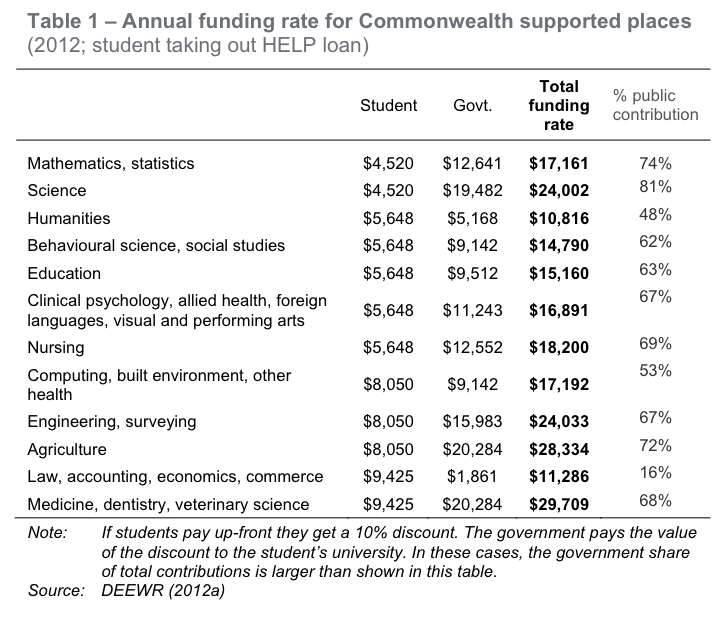Many people expect higher levels of education are associated with higher earnings. But, in a reality a lot of graduates end up working in a bar or cafe and some still have no job six months after graduation.
According to the Graduate Winners report issued by the Grattan Institute, the Government should reduce higher education funding even further, resulting in students having to pay more for their courses.
Grattan Institute higher education program director Andrew Norton said “higher education subsidies should be drastically reduced and only paid when they lead to public benefits.”
He argues that regardless of the level of government funding, students will continue to take courses at universities, because of the benefits upon graduation.
“Graduates do well out of higher education. They have attractive jobs, above-average pay and status. They take interesting courses and enjoy student life,” Director Norton said.
However, not all students graduate and step straight in to a good job and earn a high income after finishing university. Most of them have to build their career from scratch and develop networks in their profession.
Previously, the Commonwealth government subsidised the tertiary sector 100 per cent, but now it only funds public university institutions to a level of 60 per cent. Under the Grattan Institute proposal, courses such as medicine, nursing, dentistry, humanities, agriculture, performing art, law and commerce would lose even further government funding.
Education is crucial to the prosperity of the Australian economy. Recently the Federal Government called for a significant improvement in literacy and numeracy standards, clearly prioritising education as critical to Australia’s ongoing economic growth. Changing funding arrangements for universities would be a major backward step to the goal of a clever country. The incentive to pursue years of study for professional qualification in important areas like nursing and medicine would be seriously diminished with increased fees.
By cutting the subsidy for these courses as proposed, it is estimated to save up to $3 billion from the higher education budget by 2016-17, while the current system will cost taxpayers around $7 billion by the middle of the decade. In context considering the benefits for the country a justifiable cost.  Graduate Winners’ report
Graduate Winners’ report
When one compares the Government’s allocation for higher education compared to the rest of the world, Australia is ranked at a disappointing seven with 29 per cent of its allocation budget. Looking at the recent survey on each country’s spending on tertiary education by GDP, Australia’s spending is below Canada (42 per cent), the US (37 per cent), Ireland (36 per cent) and even Japan (34 per cent). Given Australia’s prosperity as result of the mining boom, it is hardly too much to ask that some of the benefits are allocated to a first-class education system.
Education is the very foundation of good citizenship. However, if a student has to pay more money for their education because of the reduction of subsidies, I think many of them would prefer not to go to university. The size of their loans would mean having to pay mortgage and debts for the rest of their lives after graduation.
Higher Education Minister Senator Chris Evans fears the plan could also “hurt poor families”. Already the cost of tertiary education excludes many Australians. This plan would further divide Australia along socio-economic lines. The education sector is Australia’s third largest export and contributes significant revenue to the Australian economy. International students would face increased fees, which might influence their choice of preferred education destination. Considering how reliant Australia is on the education industry, any new policies that deter international students will have a huge social and economic cost.
Victoria University Vice Chancellor and President Peter Dawkins, in responding to Andrew Norton’s report , pointed out that education is significant factor in contributing to Australia’s economic development.
“Australia embarks at the very important period of the development of the Australian economy and education systems effectively funded are significant in substantially expanding the number of people who go to tertiary education,” he said.
Professor Dawkins said evidence shows that the future growth of the economy depends heavily on having the best skilled workforce.
“If you don’t have fairly high level of skills and fairly high level of qualifications in the 21st Century you are not going to compete and provide economic growth,” he said.
[poll id=”18″]
